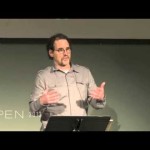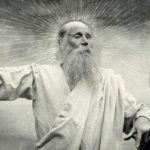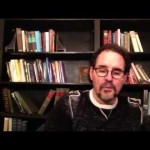We run our website the way we wished the whole internet worked: we provide high quality original content with no ads. We are funded solely by your direct support. Please consider supporting this project.
How do you respond to 1 Kings 13:2–3?
The Lord proclaims against the pagan alter of Jeroboam, “O altar, altar, thus says the Lord: ‘A son shall be born to the house of David, Josiah by name; and he shall sacrifice on you the priests of the high places who offer incense on you, and human bones shall be burned on you.’ He gave a sign the same day, saying, ‘This is the sign that the Lord has spoken: The altar shall be torn down, and the ashes that are on it shall be poured out.’” (Cf. 2 Kings 22:1; 23:15–16)
The Lord was growing impatient with the ever-increasing idolatrous practices of the Israelites. He therefore decreed that it would come to a violent end in a subsequent generation by a descendant of the house of David. As a proof that Yahweh, not an idol, is the sovereign Lord of history, Yahweh surrounded this predetermined destruction with certain prophetic signs. He told the Israelites ahead of time how this destruction would occur and even the name of the one who would initiate it: Josiah (meaning, “Yahweh supports”).
The passage clearly expresses that at this point God had resolved to control, and thus foreknow, certain aspects of the future. But the passage does not suggest that everything about the future is foreknown as a settled fact, or even that the portion that would come to pass (which the Lord at this point foreknew) was always foreknown by God.
It is important to keep in mind that the sovereign Lord of history can determine whatever he wants to about the future and thus foreknow it. He wisely balances the freedom he grants his human subjects with his providential control as he guides the world to achieve his overall objectives. Thus, for example, though Josiah’s father Amon remained free in other respects, he was apparently not free to choose any name other than “Josiah” for his son, for this had been divinely determined. And though Josiah remained a free agent, at least one thing about his future was absolutely certain: he would destroy the pagan altar and end the pagan priesthood that had been plaguing Israel.
Many people who are accustomed to the classical view of divine foreknowledge initially have difficulty with the notion of a partly settled and partly open future. It seems to them that it must be all one way or the other. This is why they are inclined to interpret biblical passages which depict God as knowing some definite things about the future as providing evidence that God has exhaustive definite knowledge of the future.
As we argued earlier, however, neither the Bible nor our experience supports such an all-or-nothing attitude. The biblical accounts that depict God as knowing aspects of the future are balanced by accounts that depict God as not knowing aspects of the future. And we know from our own experience that all the free choices we make are made in the context of many other things that are already settled. We are not able to choose the initial circumstances of our life, our basic physical make up and personality, and a number of things that happen to us along life’s way. But within this determined context there are many things we can choose—such as how we will respond to these factors that are outside of our control.
For this reason we ought to have little trouble affirming that God could control and foreknow that a future king named Josiah would destroy paganism in the land without concluding that everything about the future is settled and that God eternally knows it as such. To return to the chess analogy, the sovereign, supremely intelligent, cosmic chessmaster has declared, “In no more than seven moves I shall take your bishop.” You can of course still move however you wish. But this much of the future game has already been decided.
Category: Q&A
Tags: Open Theism, Q&A
Topics: Open Theism, Responding to Objections
Verse: 1 Kings 13
Related Reading

Open2013 Speakers (Video)
Here’s all of the videos of the speakers and their Q&A’s from Open2013. Unfortunately, there was a mix-up and we didn’t get Jessica Kelley’s presentation taped. We’re working to get her to speak again so we can get that to you. Thanks for posting this on youtube T. C.! And now, without further ado… Greg…

How can I feel secure in my salvation?
Question: I constant worry about whether I’m saved or not. Do I lose my salvation every time I sin? How can I feel secure that I’m saved? Answer: It seems to me you’re framing your “salvation” within a legal paradigm rather than a relational paradigm. It’s like God is an angry judge and your a…

Podcast: Do Open Theists Believe that God EVER Intercedes Directly in the World?
Greg considers God’s intervention in light of human prayer, and discusses the covenant of non-coercion. http://traffic.libsyn.com/askgregboyd/Episode_0122.mp3 [3] Swain, 40. Photo via Ted Van Peltflickr.com

Free Will: Is it a coherent concept?
Greg is going to be spending the next several blogs talking about the idea of free will. In this first reflection, he discusses whether it is coherent to speak of a decision that is not determined or exhaustively caused.

How do you respond to Proverbs 16:9?
“The human mind plans the way, but the Lord directs the steps.” (cf. Prov. 19:21; 20:24; Jere. 10:23) Far from teaching that God controls everything, as some compatibilists maintain, this verse contrasts what the Lord controls with what he chooses not to control. Humans can and do make their own plans, but the Lord directs…
